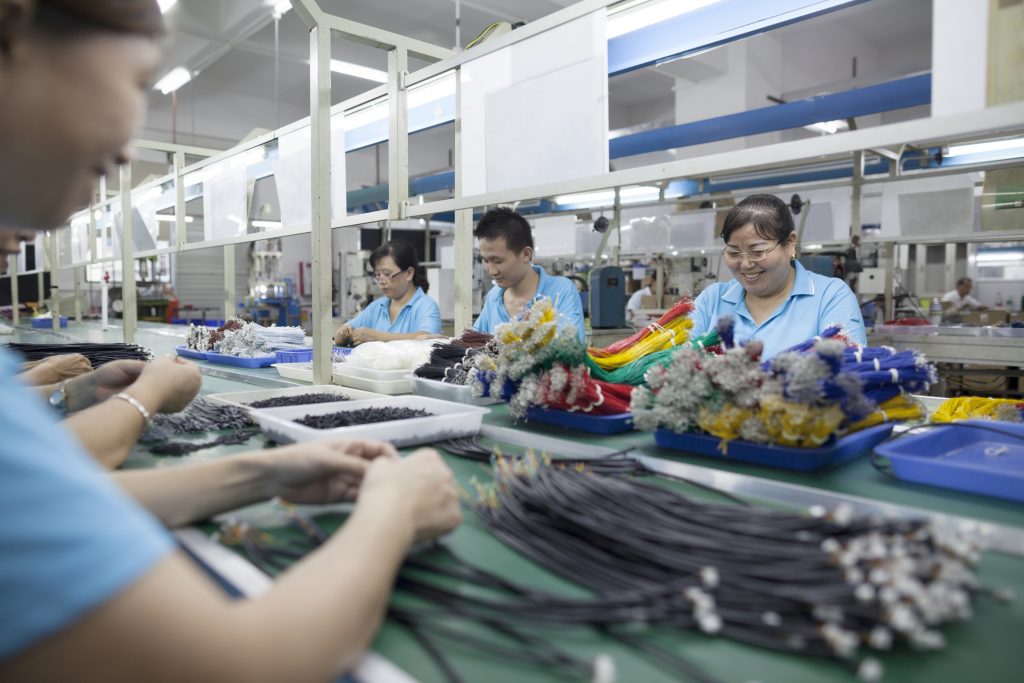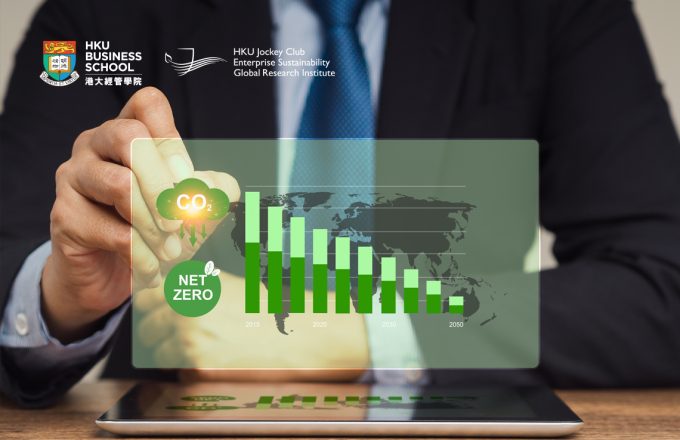Copying gender practices from MNCs is good for business

Photo credit: iStock.com/maroke
When local companies learn from MNCs to employ more women, the result is changed gender norms and higher productivity.
International connectivity and trade have increased in frequency and breadth across nations in the last decades thanks to globalization. As economic linkages are developed between countries, they bring with them not just new goods and services, but also new ideas and different approaches to running businesses. In some cases, learning from these new perspectives can help local businesses improve their performance.
One of these approaches concerns the role of women in organizations. New research shows that when more women work in an affiliate of a multinational corporation (MNC) and when the representation of women in managerial roles increases, it can not only result in higher productivity for the MNC affiliate, but also for local firms that are influenced to change their hiring practices.
Do MNCs transfer culture?
While expanding the reach to new markets and set up new overseas operations, MNCs typically introduce their own corporate culture and a set of established policies around strategies such as human resources and management pipeline development to the affiliates.
When the MNC recruits new employees from the host culture, different approaches to gender and hiring strategies in different countries become apparent. These differences shine a spotlight on the related but often overlooked question of whether MNCs’ internal practices impact the behaviour of local companies in the same industry or district.
China is an interesting place to study this phenomenon because of the high number of MNCs it attracts as its economy has strengthened. More than one million foreign companies were registered in Mainland China at the end of 2020.[1] Many affiliates in China belong to well-known American companies such as Google, Microsoft, and Walmart or large European firms such as Richemont, Prada and Volkswagen, which have their headquarters in countries that have a more gender-equal approach to labour than has traditionally been the case in China.
In their study “Do multinationals transfer culture? Evidence on female employment in China”, published in the Journal of International Economics in July 2021, authors Heiwai TANG and Yifan ZHANG show that this is indeed the case when it comes to gender hiring policies. MNC practices do impact the behaviour of local companies, and the outcome is a positive impact on the productivity of local companies.
The authors point to the importance of Confucian teaching about the role of women in China as the source of the lack of gender equality in China. Confucius taught that women should be subservient to men. This has led to women in China being treated as secondary to men and may help to explain a tendency to prefer male workers over female workers.
Hiring less women comes at a price
But firms that choose to employ fewer women are doing so at the cost to their bottom line: the authors show that this kind of bias in hiring policies can result in a loss of productivity for firms.
The positive impact on profits of hiring more women has already been well documented. For example, a 2020 McKinsey report based on a survey of more than 1,000 large companies in 15 countries showed the companies that led on gender diversity were 25 percent more likely to have above-average profitability than companies that lagged on gender diversity.[2] At the executive level, a study of FTSE 100 companies in the UK published in 2020 found that firms that had more than 30 percent of women on their boards were more likely to perform better financially than firms with fewer women in executive roles.[3]
Some may argue that FIEs [foreign-invested enterprises] may prefer to employ more women because they can pay them less, as the Chinese labour market, among others, is marked by gender discrimination in pay. The authors control for that, and conclude that it is not the case. “FIEs do not appear to be attracted to markets where female wages are lower or that they depress female wages,” they write.
Knock-on effect of MNC hiring practices

Photo credit: iStock.com/FangXiaNuo
In their survey of manufacturing firms in China, the authors found that local affiliates of MNCs typically employ more female workers compared to Chinese firms in the same industry. If the MNC’s home country is more gender-equal, the result is more pronounced. Naturally, local companies in the same industry study the newcomers and scrutinize their practices, including hiring policies.
The authors then examined whether local firms started to employ greater numbers of women workers, emulating the MNC affiliates. The authors expected to find that this would be the case. “We hypothesize that domestic firms, after observing the decisions and outcomes of FIEs in the same market (industry or city), will update their beliefs about female workers,” wrote the authors.
The results of their study showed that the more MNCs present, the higher the number of women employed by a local firm in the same industry or city. “…we find evidence that domestic firms respond to increased Foreign Direct Investment by employing more women, probably due to imitation,” said the authors. “Such cultural spill overs are stronger in the more female labour-intensive industries.”
Learning to promote women
While western countries may often have a higher level of gender equality than is the case in China, they are far from perfect. The lower likelihood of promotion for women compared to men is well documented in western countries. Nonetheless, women working for MNCs in countries with higher gender equality than China stand a better chance of being promoted to managerial positions in the affiliate’s host country than women in local companies.
As well as having more women workers, MNC affiliates are also more likely to have a higher number of female managers. Perhaps that is not surprising—as mentioned earlier, MNCs that adopt gender-equal policies in their home country are likely to bring these with them when setting up affiliates abroad. The situation is different for local companies, with fewer women managers, but here again, the authors found that local companies change their behaviour after learning successful practices from MNCs. Local firms are more likely to hire female workers and are also more likely to promote them to managerial level when there are more MNCs in the same industry or the same city.
More women for greater productivity gains
The research reports a win-win result that Chinese manufacturing firms gain a 5 percent increase in productivity if they change their gender hiring bias and recruit more women. “After fully eliminating gender discrimination by setting the female-to-male labour ratios of all firms to the benchmark based on the corresponding US industry, we find that China’s aggregate manufacturing total productivity factor (TFP) increases by about 5 percent […]” they write.
The study also shows that one of the lesser-known impacts of globalization is its ability to change gender norms, and to do that quite quickly. Closing gender gaps observed in some developing countries could be partly due to the impact of changed gender policies learned from MNCs, suggest the authors, bringing unexpected benefits for gender equality.
Fear missing out on the potential for substantial productivity gains due to biases in hiring practices? Fortunately, the study shows that these biases can be unlearnt and removed, bringing benefits to both women and companies.
About this Research
Tang, H., & Zhang, Y. (2021). Do multinationals transfer culture? Evidence on female employment in China. Journal of International Economics, 133, 103518.
Sources
[1] https://www.registrationchina.com/articles/how-many-foreign-companies-in-china/
[2] McKinsey. “Diversity Wins, How Inclusion Matters.” 19 May 2020.https://www.mckinsey.com/featured-insights/diversity-and-inclusion/diversity-wins-how-inclusion-matters
[3] Brahma S. et al. “Board gender diversity and firm performance: The UK evidence.” 19 July 2020. https://onlinelibrary.wiley.com/doi/full/10.1002/ijfe.2089







